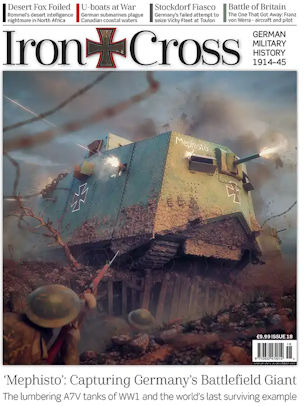Iron Cross: Subscription Offers
Iron Cross puts the German military under the microscope; looking at organisations and tactics, as well as at materiel, technology, politics, and the more personal and human elements of the German serviceman’s experience. The content covers the land, sea, and air war across all periods of both wars. To a more limited extent, it covers the inter-war period in Germany between 1919 and 1939.
Take a look at our subscription offers below.

